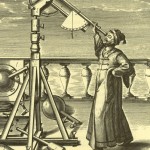 Science, Nature and Art in the Time of the Baroque(Seville, 9-11 Nov 15) Focus-Abengoa Foundation, Hospital de los Venerables, Plaza de los Venerables 8, 41004 Seville, Spain, November 9 – 11, 2015
Science, Nature and Art in the Time of the Baroque(Seville, 9-11 Nov 15) Focus-Abengoa Foundation, Hospital de los Venerables, Plaza de los Venerables 8, 41004 Seville, Spain, November 9 – 11, 2015
The Focus-Abengoa Foundation is announcing the programme of the Baroque School directed by Antonio-Miguel Bernal Rodríguez: “Science, Nature and Art in the Time of the Baroque”
Programme
Monday, 9th November 19:45 h.
Presentation 20:00 h. Inaugural Conference: Poussin’s Reflections on Man, Nature and Art Keith Christiansen, Metropolitan Museum of New York
Tuesday, 10th November
10:00 h. Jesuits in Baroque culture: art, education, science Guillermo Rodríguez Izquierdo SJ., Loyola University Andalucia
11:00 h. Natural history and visual culture in the seventeenth century José Ramón Marcaida, University of Cambridge
12:00 h. Break
12:30 h. Science, the sciences and Baroque Javier Viar, Bilbao Fine Arts Museum
17:00 h. Symbolic Baroque Ornithology: birds in books of emblems and prints of the 17th century José Julio García Arranz, University of Extremadura
18:00 h. 17th century Italy: the breeze through the leaves Manuela Mena, Prado National Museum
19:00 h. Organ concert leaded by José Enrique Ayarra Jarne, Focus-Abengoa Foundation organist, at Hospital de los Venerables Church
Wednesday, 11th November
10:00 h. Still life: the vanities in the work of Valdés Leal Enrique Valdivieso, University of Seville
11:00 h. Velázquez and nature Guillaume Kienzt, Louvre Museum
12:00 h. Round table About landscape Presenter: Juan Fernández Lacomba Participants: Javier Viar, José Ramón Marcaida and Guillaume Kienzt
13:30 h. Closure
15:30 h. Campus visit to Focus-Abengoa Sanlúcar la Mayor Landscapes of Guadiamar Fernando Amores and Juan Fernández Lacomba
With the birth of the “new science” in the wake of Bacon, the theories on the world and nature ceased being essentially poetic –as they were considered in the long inherited mediaeval tradition– and began to be felt as essentially scientific. Modern science and the development of the artistic culture of the Baroque came hand in hand and became the cornerstones of the history of European culture. In this modern science, the discovery of the foundations of nature led to questions on the relationship between people and the natural environment, which went beyond living nature to open up new avenues to the theories of light and colour, space and time, as expressed in the creative brilliance of Velázquez in the gardens of Villa Medicis. The “vision” of nature took on a variety of projections through the art of the Baroque. The conception of the natural world under the impetus of the 17th and 18th century scientists became increasingly removed from the previous allegories and symbolism. The landscape as an expressive medium emerged in pure form as man interacted with nature. Recalling among others, André Mollet in his treatise Le Jardin de Plaisir (1651), from the gardens of delights of the 16th century to the gardens of love of the 17th century, natural history experienced a qualitative leap in the representation of nature as art and in art under the guise of collecting and as visual culture. This art and science in the time of the Baroque were not antagonistic and instead were interrelated in the construction of a new pictorial time and space where nature became viewed even more intensely less as a divine hieroglyphic and more as visual culture, a faithful reflection of the influence of science on art.
Scientific coordination: Antonio-Miguel Bernal Rodríguez, University of Seville. National Prize in History Coordinator: Rocío García-Carranza, Focus-Abengoa Foundation Free entrance Access to the whole course or to individual conferences is open. The sessions will be held in the Church of the Hospital de los Venerables, which hosts Focus-Abengoa Foundation. The main entrance is located in Los Venerables Square.
Registration, diploma and credits recognition By registering at Focus-Abengoa official website, attendants will be awarded a certified diploma and will be able to gain credits. Loyola University Andalucia, Pablo de Olavide University and University of Seville will officially award ECTS credits (European Credit Transfer System). Price: 30 euros (only for diploma/credits). Scholarships Scholarships will be granted to obtain diplomas (limited). More information available on our website. The full information is available at the following link: http://www.focus.abengoa.es/web/en/escuela-barroco/index.html

Leave a Reply
You must be logged in to post a comment.